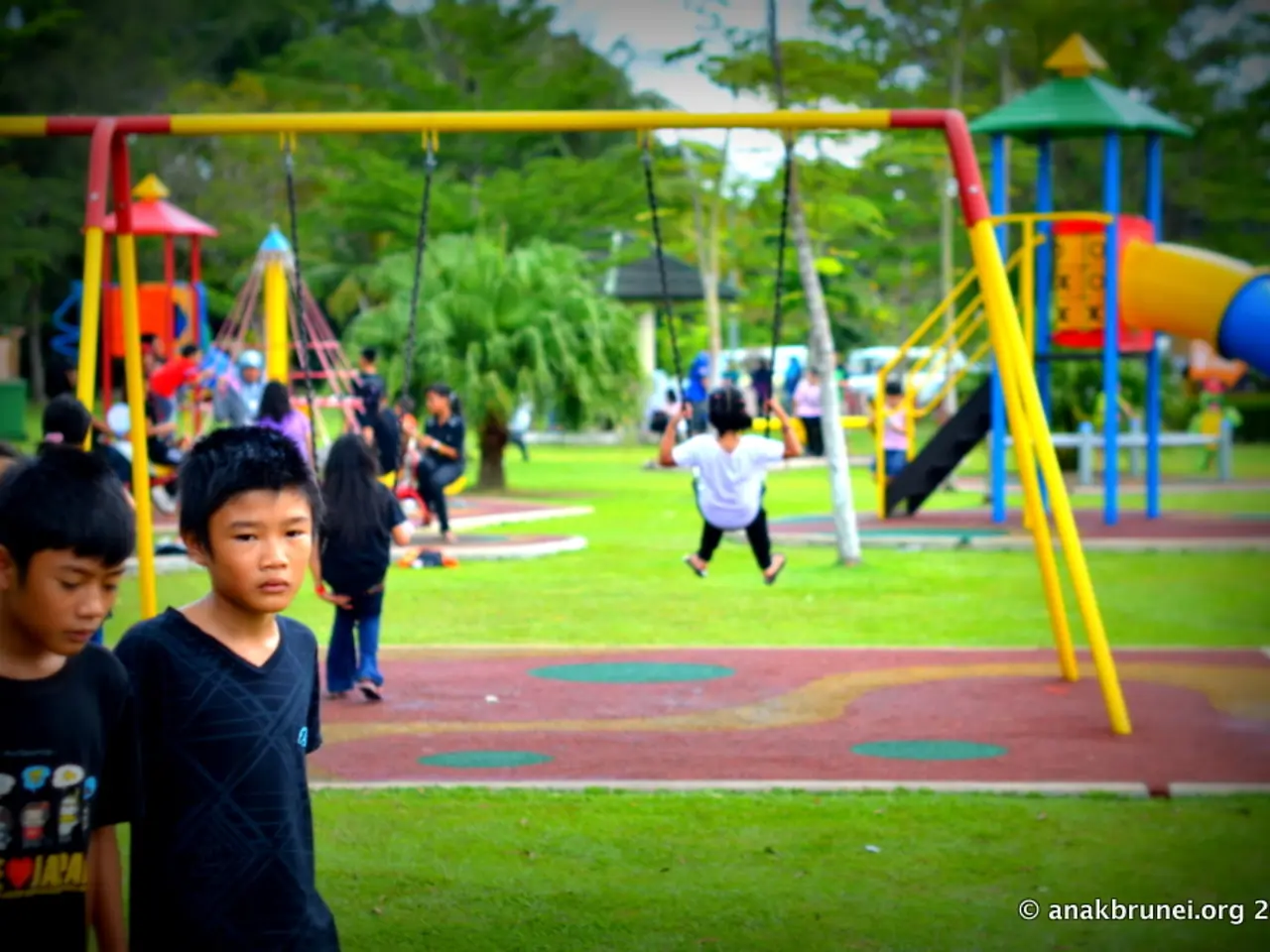Experiencing Nature's Wonders: Nine Advantages of Full Immersion for Families, Promoting Enduring Awe and Interest
Modern families are discovering the numerous benefits of immersing themselves in nature, with a focus on consistency and simplicity rather than complexity. This connection with the outdoors has been shown to significantly improve mental well-being, emotional regulation, creativity, social-emotional skills, perseverance, and physical health [1][2][4][5].
Spending slow, mindful time outdoors is key to reaping these benefits. Instead of rushing through activities, families are encouraged to extend their outdoor time, allowing boredom to foster creativity and deeper engagement [1]. Another approach is practicing forest bathing or mindful nature walks, focusing on presence and using senses to observe surroundings without the pressure for exercise or accomplishments [2].
Simple, playful nature activities also play a crucial role. These could include looking for flowers, creating seed balls, splashing in puddles, or observing bugs, which help cultivate curiosity and emotional growth [3][5]. Regardless of the weather, families are encouraged to persist with outdoor time, teaching resilience and adaptability while parents model steady energy [1].
Outdoor experiences can also be used intentionally to build children’s social-emotional learning, such as empathy and cooperation, and promote leadership and confidence through unstructured play in natural settings [3]. Integrating nature moments into daily routines, such as taking brief breaks to notice natural sounds, breeze, or light shifts near home, makes nature connection accessible without special equipment or travel [2][4].
The organic leadership opportunities presented by nature are another advantage. Family members take turns guiding hikes, navigating trails, or teaching outdoor skills, fostering a sense of responsibility and teamwork [6]. Nature-based activities naturally foster cooperation as families work together to overcome outdoor challenges [7].
Moreover, nature immersion creates opportunities for families to develop environmental consciousness and inspire action for conservation [8]. Children engaging in outdoor learning demonstrate better information retention and show a 30% improvement in task completion compared to indoor settings [9]. Children who engage in hands-on conservation activities are 3 times more likely to develop pro-environmental behaviors by age 12 [10].
Establishing weekly outdoor routines is 70% more likely to be sustained long-term [11]. Nature spaces within 15 minutes of home can include neighborhood parks, urban trails, or school grounds [12]. Planning age-appropriate activities is key to starting a family’s nature journey [13].
Interestingly, families who implement regular tech breaks during nature activities spend 65% more time in meaningful conversation [14]. Early positive experiences in nature foster deep environmental values that last into adulthood [5]. Consistency in nature connection practice is more important than complexity for creating lasting traditions [1].
In conclusion, the key is regular, mindful, and unstructured engagement with natural environments that fits family lifestyles, fostering lifelong appreciation and wellness through simple, consistent outdoor experiences [1][2][3][4][5]. Every moment spent in nature is an investment in your family’s well-being and future.
- Families can extend their outdoor time to foster creativity and deeper engagement, promoting a consistent and simple lifestyle that improves mental well-being.
- Practicing forest bathing or mindful nature walks can help families focus on presence and use their senses to observe their surroundings without the pressure for exercise or accomplishments.
- Simple, playful nature activities such as creating seed balls or observing bugs can cultivate curiosity and emotional growth, and are accessible without special equipment or travel.
- Integrating nature moments into daily routines, like taking brief breaks to notice natural sounds, breeze, or light shifts near home, can build children's social-emotional learning.
- Nature-based activities promote leadership and confidence in children, and families who engage in conservation activities are more likely to develop pro-environmental behaviors.






